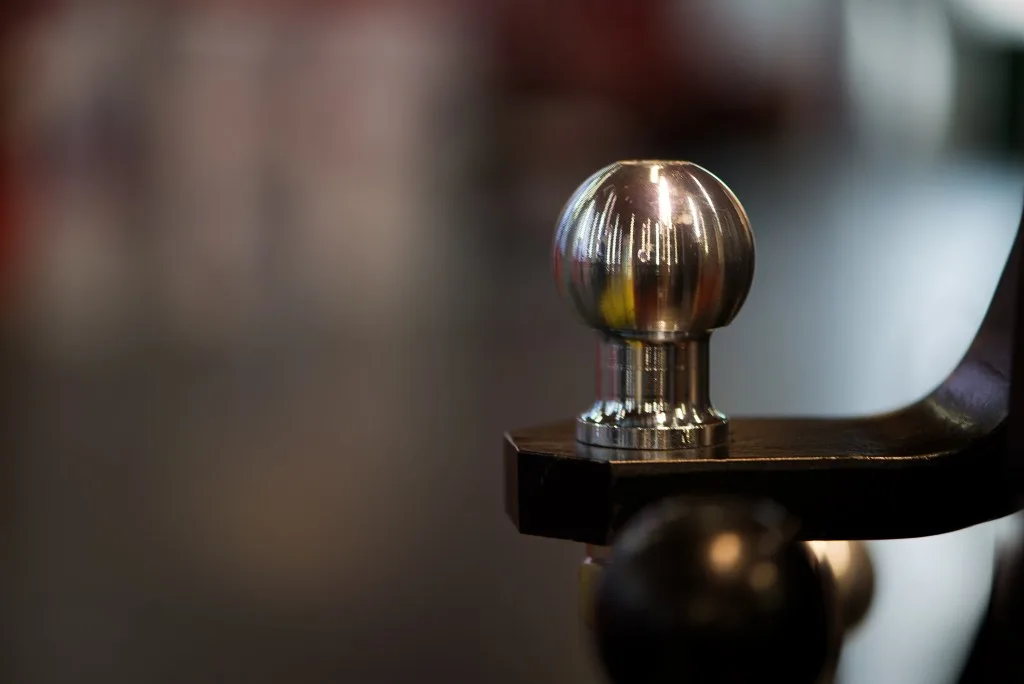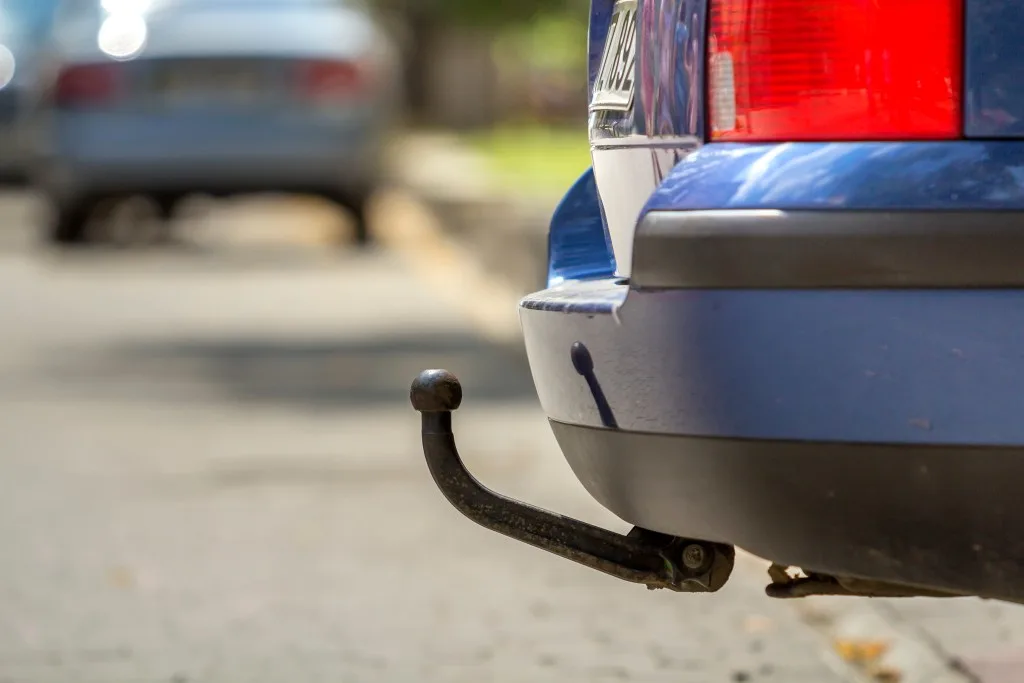A properly greased ball hitch on your tow vehicle may be more important than you know.
Perhaps you’ve been sitting at the picnic table enjoying lunch when a truck pulling a camper comes by making loud squeaking noises. Or maybe it sounds more like metal scraping against metal. Either way, it’s an unpleasant noise.
Why does this happen to some trailers but not others? It comes down to grease.
Let’s check it out!
Do You Need To Grease Your Trailer Ball Hitch When Towing?
You’ll meet RVers who have never greased their hitch before. Then you’ll meet others who can’t imagine not doing this simple maintenance step.
So why is this topic so debatable? Like so many conversations, this one has two sides, which will be discussed down below. Although it’s not required, we think it’s a good idea to grease your trailer’s ball hitch. The benefits outweigh the disadvantages.
The Benefits of a Greasing the Hitch
When you put grease on the hitch, you’re protecting the metal from corrosion. You do not want this piece of equipment getting damaged since it’s what connects your camper to your vehicle. This will lead to a longer-lasting ball hitch, saving you money in the long run. Even stainless steel metal will eventually experience galling if not greased.
Other than protecting the ball hitch itself, another benefit of keeping it greased is the reduction of squeaking as the camper turns. The sound of metal on metal is quite unpleasant. You don’t want to be that guy driving around the campground looking for your site making awful noises around every turn.

The Disadvantages of Greasing the Hitch
One of the biggest disadvantages of greasing the ball hitch is the mess. There’s a mess on your hands, and you have to pay close attention so that you don’t accidentally bump into the hitch and get the grease on your clothes. This can be especially difficult with children running around
Grease can also attract dirt. If you don’t properly clean the hitch and regrease it, debris can damage the metal. Finally, some owners just don’t like the “look” of a greased hitch. It appears dirty and sticky rather than shiny and clean.
How Do You Grease The Hitch Ball?
Before you grease the hitch ball, inspect it for damage. You don’t want to continue using it if you notice dents, scratches, and rust. It’s time to buy a new one instead of just covering the old one with grease.
If it appears in good condition, clean the hitch ball of dirt and old grease. If you do see a small amount of rust, just remove it with sandpaper. You want the surface to be smooth before you apply grease. Once it’s clean, apply the grease liberally around all sides of the trailer hitch ball. Coat it liberally to fully cover the ball.
When you’re finished, clean your hands well. Be careful not to track in grease when you return to your camper. You’ll have a terrible mess that’s hard to clean up.
Pro Tip: We uncovered Will Ball Hitch Size Affect My Towing Capabilities? Find out!

How Often Should You Reapply Grease?
You don’t have to regrease your trailer hitch ball often. Usually, once a season is sufficient for RVers who hit the campground during spring and fall.
However, if you travel more often, it’s a good idea to clean off the old grease and reapply every month or so. The more often you tow your camper, the more wear and tear the hitch ball is going to receive. So make sure to take care of the equipment. Inspect, clean, and regrease it as necessary.
What Is An Alternative Method to Protecting the Hitch Ball?
The RVers who claim they’ve never greased their trailer hitch ball before still protect the metal with alternative methods. Some will use a tennis ball to keep it covered. This protects it from weather, which leads to rust and corrosion.
Other people use a bucket or a bag to cover the ball. When you’re stationary for a long period of time or the camper is in storage, it’s important to protect the metal from rain.
You can also use a dry lubricant, one that doesn’t get grease all over your pants or shoes. A dry graphite lube repels dirt and protects the hitch ball just like grease does.
However, since it’s a spray, it can still make a mess. When applying, make sure you’re in a well-ventilated area. Tube-o-Lube is another dry lubricant that’s powdered and not in an aerosol can. It can be a less messy alternative.
Pro Tip: New to RVing and nervous to hitch up for the first time? We found 7 Tips for Hitching Up an RV Camper that Actually Work.

What Should You Do With A Rusty Hitch Ball?
If there are only a few spots of rust, you can simply use sandpaper to get rid of those areas. Distilled vinegar or Coca-Cola will also wipe away any rust.
However, anything more damaging means you need a new hitch ball. This is the connecting piece between thousands of pounds of the camper and your tow vehicle. It’s not a piece of equipment that you want to have corroded and rusty.
If it appears structurally sound, it’s still good to use. But once you begin to question its strength and durability, it’s time to get a new one.
To Grease Or Not To Grease, That Is The Question
No one is going to make you grease your trailer hitch ball. But many people will encourage you to do so.
The disadvantages can easily be avoided. Pay attention and proceed with caution so you don’t make a mess. Put a bucket over the hitch ball so kids don’t accidentally run into it, and, at the same time, it’s protected from the weather and dirt. And be sure to clean it off before you regrease.
Don’t be the guy driving around with a squeaking trailer. Take care of this piece of equipment and go buy a tub of grease or one of the alternatives today.
Which method will you use to keep your trailer hitch ball protected? Let us know in the comments below.
We’ll Help You Find the Best Free Camping in the USA
You should give it a try!
As a matter of fact, these free campsites are yours to enjoy. Every time you pay federal taxes, you’re contributing to these lands.
Become a FREE CAMPING INSIDER and join the 100,000 campers who love to score the best site!
We’ll send you the 50 Best Free Campsites in the USA (one per state). Access the list by submitting your email below: